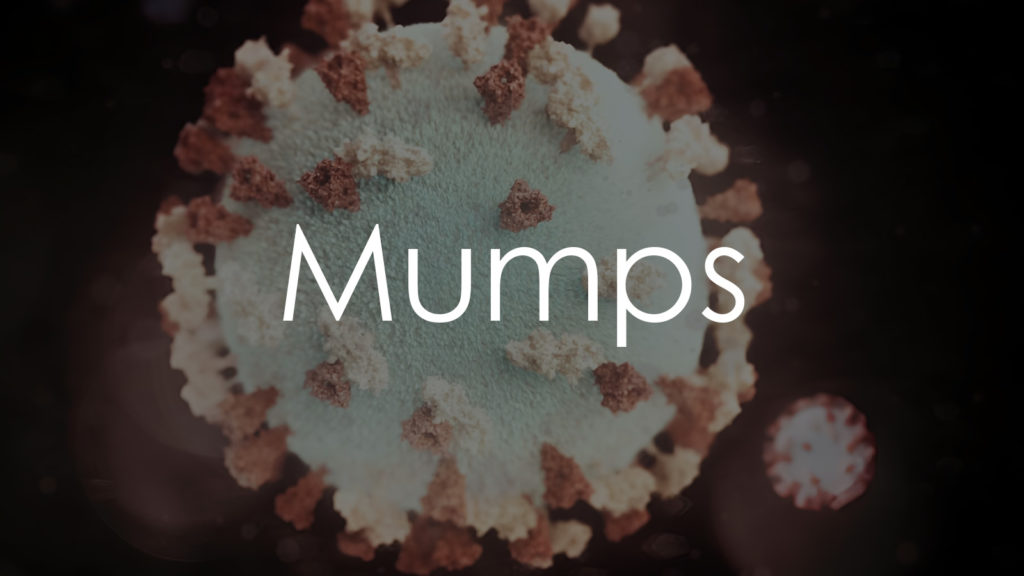Treatment of mumps focuses on alleviating symptoms, preventing complications, and supporting the body’s natural recovery process. Understanding the various aspects of mumps treatment is essential for effective management and ensuring a smooth recovery.

Symptomatic Treatment
Rest and Recovery
Importance of Rest
Adequate rest is crucial for individuals with mumps. The body needs time to fight off the infection, and rest helps conserve energy and promote healing.
Managing Fatigue
Reducing physical activity and ensuring plenty of sleep can help manage fatigue, a common symptom of mumps.
Hydration
Fluid Intake
Staying well-hydrated is essential, especially if symptoms include fever and loss of appetite. Drinking plenty of fluids such as water, herbal teas, and clear broths can prevent dehydration.
Electrolyte Solutions
Oral rehydration solutions or electrolyte drinks can be beneficial, particularly if nausea or vomiting is present, to maintain electrolyte balance.
Pain and Fever Management
Over-the-Counter Pain Relievers
Over-the-counter pain relievers, such as those referring to nonsteroidal anti-inflammatory drugs (NSAIDs), can help reduce pain and fever. It’s important to follow the recommended dosages and consult with a healthcare provider if necessary.
Warm or Cold Compresses
Applying warm or cold compresses to swollen and painful areas, such as the parotid glands, can provide relief from discomfort and reduce swelling.
Dietary Recommendations
Soft and Bland Foods
Easing Discomfort
Consuming soft and bland foods can help ease the discomfort of chewing and swallowing caused by swollen salivary glands. Examples include mashed potatoes, yogurt, and applesauce.
Avoiding Irritants
Avoiding acidic and spicy foods can prevent further irritation of the mouth and throat, which can be sensitive due to mumps.
Small, Frequent Meals
Maintaining Nutrition
Eating small, frequent meals can help maintain adequate nutrition, especially if appetite is reduced. This approach can also prevent nausea and make eating more manageable.
Isolation and Prevention of Spread
Quarantine Measures
Home Isolation
Individuals with mumps should remain isolated at home, especially during the first five days after symptoms appear, to prevent spreading the virus to others.
Avoiding Close Contact
Avoiding close contact with others, particularly unvaccinated individuals, is crucial to prevent transmission of the mumps virus.
Good Hygiene Practices
Hand Hygiene
Frequent handwashing with soap and water can reduce the risk of spreading the virus. Using hand sanitizer with at least 60% alcohol is an alternative when soap and water are not available.
Respiratory Etiquette
Covering the mouth and nose with a tissue or elbow when coughing or sneezing, and disposing of tissues properly, can help prevent the spread of respiratory droplets containing the virus.
Managing Complications
Orchitis
Pain Relief and Support
For males experiencing orchitis (inflammation of the testicles), supportive measures such as bed rest, scrotal support, and applying ice packs can provide relief. Pain relievers can also help manage discomfort.
Medical Attention
Seeking medical attention for severe orchitis is important to prevent complications such as testicular atrophy or infertility.
Oophoritis and Mastitis
Pain Management
Females with oophoritis (inflammation of the ovaries) or mastitis (inflammation of the breast tissue) should manage pain with appropriate pain relievers and apply warm or cold compresses to reduce discomfort.
Monitoring Symptoms
Monitoring symptoms and seeking medical advice if pain or swelling worsens is important to manage these complications effectively.
Meningitis and Encephalitis
Hospitalization
Severe complications like meningitis (inflammation of the membranes covering the brain and spinal cord) and encephalitis (inflammation of the brain) require immediate medical attention and hospitalization.
Supportive Care
Supportive care, including intravenous fluids, pain management, and monitoring of neurological symptoms, is essential for individuals with these serious complications.
Hearing Loss
Early Intervention
Early intervention is crucial if symptoms of hearing loss occur. Consulting with an audiologist or an ear, nose, and throat (ENT) specialist can help assess the extent of hearing loss and determine appropriate treatment.
Hearing Aids and Therapies
In cases of permanent hearing loss, hearing aids and auditory therapies may be necessary to improve hearing function and quality of life.
Vaccination and Prevention
Importance of Vaccination
MMR Vaccine
The MMR vaccine (measles, mumps, and rubella) is the most effective way to prevent mumps. Ensuring that children receive both doses of the vaccine according to the recommended schedule is crucial for immunity.
Booster Shots
In some cases, booster shots may be recommended for adults, particularly during mumps outbreaks or for individuals in high-risk settings.
Community Immunity
Herd Immunity
High vaccination rates within a community help achieve herd immunity, reducing the overall prevalence of mumps and protecting those who are unable to be vaccinated.
Public Health Measures
Public health measures, such as promoting vaccination and educating the public about mumps prevention, play a vital role in controlling the spread of the virus.
Conclusion
Effective treatment of mumps involves a combination of symptomatic relief, isolation to prevent transmission, and management of potential complications. By following medical advice, maintaining good hygiene practices, and ensuring vaccination, individuals can recover from mumps and help prevent its spread. Early diagnosis and prompt treatment are key to managing symptoms and reducing the risk of severe complications, leading to better health outcomes and a smoother recovery process.